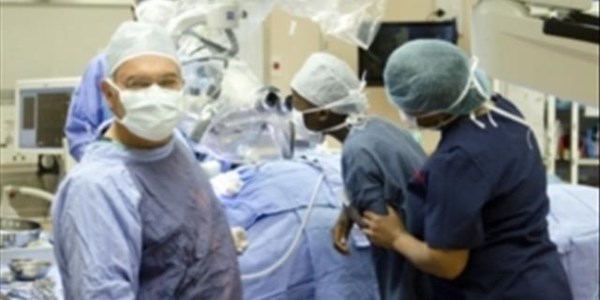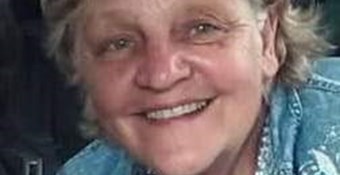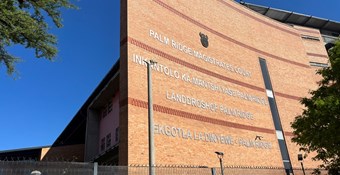National
National Pathology Committee rubbishes 'untrained' post-mortem claims─── 05:27 Sun, 25 Jun 2017

Johannesburg – Recent reports that untrained forensic officers have conducted post-mortems unsupervised for the past 10 years are grossly inaccurate, the National Forensic Pathology Service Committee said on Friday.
In a lengthy statement, Chairman Professor Gert Saayman said “irresponsible statements” by journalists, union representatives and government officials will undoubtedly discourage other medical professionals from entering the pathological field and demotivate the few existing specialists.
“It is absurd to suggest that the non-medically trained assistants at such autopsies have been responsible for ‘conducting the autopsies’ or that they would be capable of orchestrating the totality of such a required examination, and of compiling the technical medical reports required for subsequent legal processes,” Saayman said.
On Wednesday News24 reported that the portfolio committee on health heard that untrained officials have been conducting post-mortems since 2006 when the service was placed under the guardianship of the Health Department.
Democratic Alliance MP Patricia Kopane, a member of the health portfolio committee, said the health department gave the committee a "history" of how the crisis developed in South African forensic services.
"Apparently these other lay people [unqualified people], they also started to do this job they are not trained to do, like dissecting the bodies and everything," Kopane said.
'Assisting'
Saayman, however, refuted this statement saying that forensic officers merely assist with post-mortem dissections.
“Despite the fact that these assistants contribute to the medico-legal investigation, it should be stressed that the doctor/pathologist at all times is responsible for the overall and direct control of the autopsy process,” Saayman said.
He said there are clear differences between a forensic officer or assistant who is employed to assist trained pathologists, and a qualified pathologist who conducts a post-mortem.
It takes a minimum of thirteen years of undergraduate training, vocational experience and postgraduate study, with multiple intensive examinations, before a forensic pathologist is qualified, Saayman said.
He said it is not unique to the field of forensic pathology that assistants do certain dissection procedures.
“[For example] when a radiographer prepares the x-ray plates of a patient or performs a CT-scan, he/she does not claim to be a radiologist (a specialist medical practitioner); when a nurse inserts a catheter for a patient or administers an injection, that does not make him/her a doctor,” Saayman said.
“When a scrub nurse or sister assists a surgeon in performing an operation, that does not make of her a surgeon and she cannot claim to have ‘performed the operation.’”
“In much the same way, it is a reductionist and simplistic representation to contend that the mere cutting open of or removal of tissues or organs from a body constitutes the ‘conducting of a post mortem examination’.
Saayman, who is also the head of forensic services at the University of Pretoria, said an accredited qualification for forensic assistants was registered at South African Qualifications Authority in 2007, but no South African tertiary academic institution found it a viable qualification, possibly due to anticipated low demand.
In-house training
Forensic officers who assist with post-mortems do however receive initial and ongoing vocational in-house training by pathologists and senior colleagues to better equip them to perform services, he said.
“It would indeed be preferable or feasible for the Department of Health to employ persons who have relevant higher qualifications (such as bachelors’ degrees in biomedical sciences and/or anatomy) to render these services - if the available monetary resources would allow for that,” Saayman said.
“In adequately resourced countries like the USA, Canada and the UK, it is possible to employ only qualified graduates to render these services - but this is probably not feasible in SA at this time.”
Also read: Unsupervised post-mortems conducted in WC due to overwhelming workloads - claim
Saayman said when the mortuaries transferred to the Department of Health in 2006, many SAPS assistants decided not to be transferred, but to remain within the police service.
It was hence necessary for the department to employ many new forensic officers, a substantial number of which at that time had no prior specific experience of working in mortuaries.
“As such, it is possible that some of these forensic officers had previously worked as drivers or as assistants at funeral parlours, etc.”
Forensic Pathologists and other medical practitioners are responsible for conducting approximately 70 000 to 80 000 post-mortems annually in South Africa, Saayman said.
He said there are between 50 and 60 qualified forensic pathologists in the country, but several hundred others who have postgraduate qualifications and diplomas in forensic pathology.
“South Africa has a massive annual burden of non-natural deaths which require forensic medical examination - having arguably the highest non-natural death rate in the world (at least for countries not at war or beset by famine.”
"South African forensic pathologists are recognised internationally for having been well trained and being highly competent - and many of these locally trained pathologists now occupy posts as senior pathologists or heads of medical examiner or coroner offices in Canada, the USA, Australia and the UK, to name but a few."
News24














